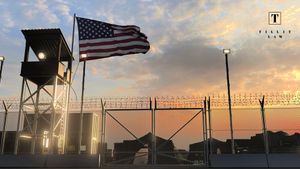Contractors often face solicitations containing vague and uncertain terms or errors so evident that a reasonable bidder would request clarification before submitting its proposal. Such solicitations are said to have patent ambiguities and may be protested. While patent ambiguities come in a variety of forms, attentive offerors should be able to spot them when they find themselves unable to interpret the solicitation terms and submit a proposal that is responsive to all its requirements.
Contractors should be aware that the Court of Federal Claims (COFC) has previously held that the silence of a solicitation regarding information necessary to comply with its terms, including information needed to comply with testing or evaluation requirements, constitutes a patent ambiguity and must be protested pre-award. Similarly, the Government’s lack of disclosure of its preferred labor mix is an omission apparent from the face of the solicitation.
Notably, the protesting contractor’s actual knowledge of the ambiguity is not determinative of whether the solicitation contains a patent ambiguity. Thus, protesting a solicitation based on a patent ambiguity can be a valuable tool for the savvy contractor as the basis of this pre-award protest ground is a reasonable bidder’s perception of the solicitation package. In other words, as long as there are two or more reasonable interpretations of a solicitation term, the adjudicating forum is likely to find that a patent ambiguity exists in the solicitation.
As a general rule, protestors may protest solicitations containing such ambiguities at either the Government Accountability Office (GAO) under its bid protest function or the COFC – but may only do so before the bid or proposal submission due date. This is true for solicitations containing patent ambiguities to begin with, as well as those that have such ambiguities subsequently incorporated into them through a solicitation amendment. Contractors may also file such protests with the procuring agency. Still, if they choose to do so, they should be aware of GAO’s strict timeliness rules should they wish to pursue a GAO protest upon receiving an adverse decision to their agency-level protest.
As with all pre-award protests, the protesting contractor must demonstrate that the agency’s error or defect prejudiced it. For the protest to be successful, the protestor should be able to show that had it not been for the patent ambiguity in the solicitation, it would have had a substantial chance of award when considering all surrounding circumstances.
This Bid Protests Insight provides a general summary of the applicable law in the practice area and does not constitute legal advice. Contractors wishing to learn more are encouraged to consult the TILLIT LAW PLLC Client Portal or Contact Us to determine how the law would apply in a specific situation.





